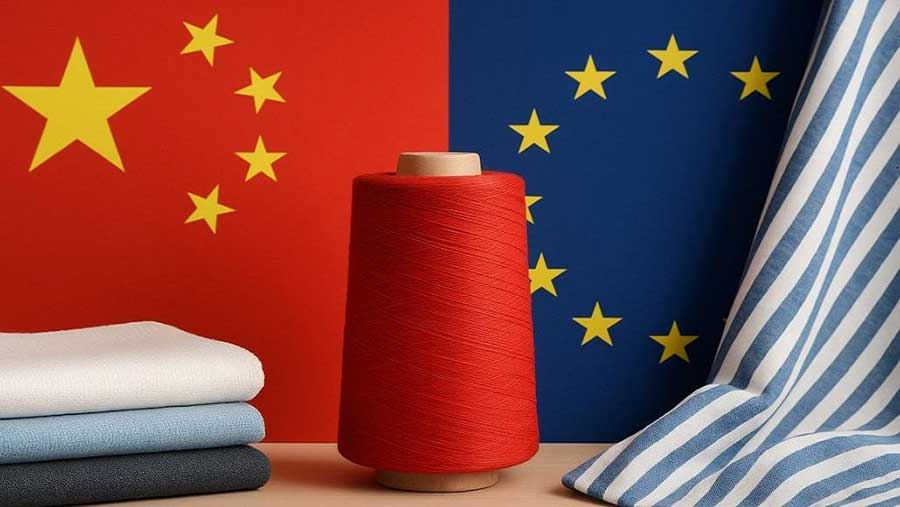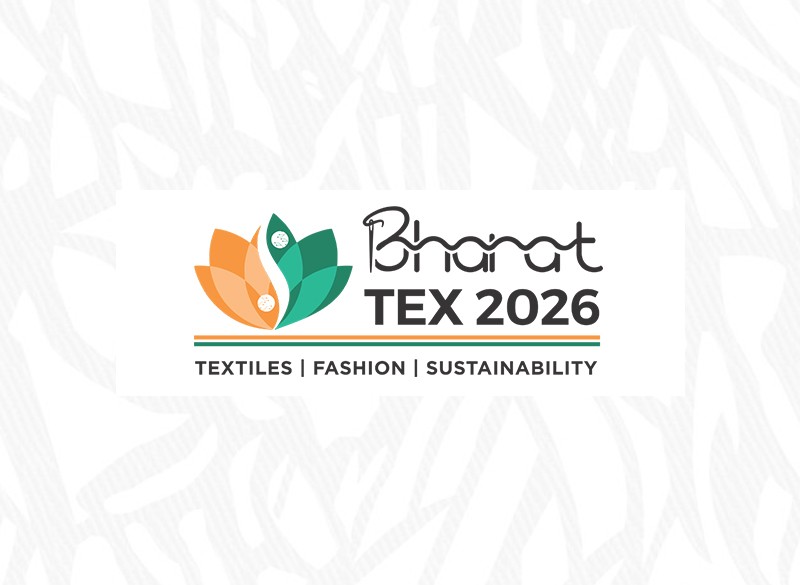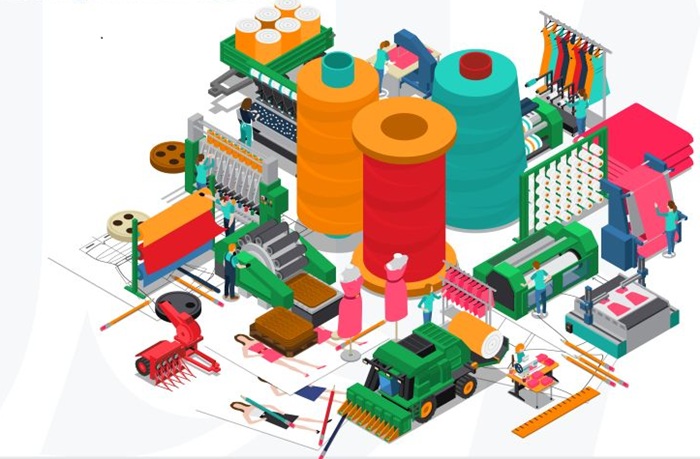FW
Bangladesh is set to fortify its position as a premier global textile hub following the Council of Advisers' approval to sign a landmark Economic Partnership Agreement (EPA) with Japan on January 22, 2026. Scheduled for formal execution on February 6, 2026, this treaty grants immediate duty-free access to 7,379 Bangladeshi products. For the textile and apparel sector, the agreement is transformative, providing zero-tariff entry for Ready-Made Garments (RMG) from day one. This proactive move effectively safeguards Bangladesh’s competitive edge as it navigates its scheduled graduation from Least Developed Country (LDC) status, ensuring that the 10–12 per cent tariff cliff typically associated with graduation is bypassed in the Japanese market.
Technical concessions and rules of origin
A critical victory for the industry is the inclusion of the ‘Single Stage Transformation’ facility. Unlike more restrictive trade regimes that require double transformation (yarn-to-fabric-to-garment), this provision allows apparel made from imported fabrics to qualify for duty-free status, offering immense flexibility to manufacturers. This EPA is a milestone that secures our $1.5 billion annual export footprint in Japan while inviting sophisticated Japanese technology into our backward linkage industries, stated Sheikh Bashir Uddin, Commerce Adviser. The deal also opens 120 Japanese service sub-sectors to Bangladesh, facilitating high-tech knowledge transfers in specialized textile machinery and sustainable dyeing processes.
Countering global headwinds
The EPA arrives as a vital counterbalance to shifting global trade dynamics, including recent tariff fluctuations in the US and EU markets. By securing the world’s fourth-largest economy, Bangladesh aims to diversify its export basket beyond basic knits into high-value functional wear and technical textiles. The agreement is projected to catalyze a fresh wave of ‘China Plus One’ investments, with several Japanese retailers already signaling plans to relocate production lines to Bangladesh's Special Economic Zones to leverage the new duty-free corridor.
France is accelerating its regulatory offensive against the ultra-fast fashion sector, moving beyond legislative rhetoric to concrete financial penalties. The Ministry of Ecological Transition has formally instructed Refashion, the state-accredited eco-organization, to finalize a robust ‘eco-modulation’ framework targeting high-volume, low-cost importers. This initiative aims to internalize the environmental costs of the ‘disposable’ business model, primarily targeting platforms like Shein and Temu. Market data indicates, these firms have secured a combined 23 per cent share of France’s online fashion market, a dominance the government seeks to curb through targeted environmental surcharges.
Implementing the 'polluter-pays' mechanism
The proposed fiscal architecture integrates with existing Extended Producer Responsibility (EPR) laws, which already mandate that apparel firms finance waste management. Under the new directive, the ‘bonus-malus’ system will be sharpened; while sustainable brands receive rebates, ultra-fast fashion products could face surcharges ranging from €5 to €10 per item by 2030. Industry analysts suggest this levy could effectively double the retail price of entry-level garments, eroding the primary competitive advantage of high-churn retailers. The objective is to ensure that the industry pays for the true impact of its logistics and waste footprint, stated Monique Barbut, Minister of Ecological Transition.
Strategic shift toward circularity
This regulatory shift is a part of a broader French strategy to boost domestic circularity. Revenue generated from these penalties is earmarked to subsidize local textile recyclers and sustainable French labels, creating a protectionist yet green industrial buffer. As Shein reportedly prepares for a potential European public offering, France’s aggressive stance represents a significant headwind, signaling a shift toward a "slow fashion" economy where volume-based growth is increasingly penalized by stringent environmental taxation.
Refashion is the government-mandated eco-organization overseeing the Extended Producer Responsibility (EPR) for clothing, footwear, and household linens in France. Funded by industry contributions, it manages the collection and recycling of over 800,000 tonnes of textiles placed on the French market annually.
With a 2028 target to reach a 60 per cent textile collection rate, Refashion is currently deploying a €58 million aid package to modernize sorting facilities. Its financial stability is anchored by mandatory fees from over 5,000 member brands, with a focus on scaling fiber-to-fiber recycling technologies to meet upcoming EU-wide circularity mandates.
Guess Inc has launched its new Spring/Summer 2026 global advertising campaign with global entrepreneur and fashion icon Chiara Ferragni. Captured through the unmistakable cinematic lens of the renowned Morelli Brothers, the campaign brings this vision to life with refined intensity and contemporary allure.
The campaign arrives as Guess reports a 7 per cent Y-o-Y revenue increase in its most recent fiscal quarter, reaching $791.4 million, boosted by strong wholesale performance in the Americas and Europe.
Reclaiming ‘IT’ status with heritage and innovation
The SS26 collection centers on a ‘refined dialogue’ between iconic West Coast heritage and modern silhouettes. Captured by the Morelli Brothers, the imagery alternates between classic black-and-white and saturated color. A focal point of the expansion is the Camden Bag, positioned to capture the burgeoning demand in the global accessories market. By reintroducing archival staples like the Bellflower Pants and the iconic bandage dress alongside elevated tailoring, Guess aims to bridge the gap between its heritage consumers and the digital-native Gen Z demographic.
Navigating volatility through portfolio diversification
Despite revenue growth, the brand faces a complex industrial climate characterized by 8 per cent sales declines in Asia and rising operational costs. To counter these headwinds, Guess is executing a dual-pronged strategy: integrating its newly acquired Rag & Bone assets to capture the high-end contemporary market and implementing AI-driven forecasting to reduce markdowns. This operational pivot is essential as the company targets double-digit operating margins, leveraging Ferragni's massive digital influence to drive conversion across its 1,058 directly operated stores.
Guess is a vertically integrated lifestyle brand operating over 1,500 retail stores across 100 countries. Specializing in premium denim, contemporary apparel, and high-margin accessories, the firm recently expanded its portfolio by acquiring rag & bone. Its current growth strategy focuses on digital modernization and optimizing retail productivity to sustain its multi-billion-dollar revenue trajectory.
Sweden’s H&M Group managed to widen its absolute revenue lead over regional competitors in FY25. Reporting net sales of approximately $24.8 billion (SEK 264 billion), the group successfully leveraged its ‘omni-model’ to integrate digital and physical retail. Despite closing nearly 120 underperforming locations, H&M achieved a 2 per cent increase in local currency sales. This growth was particularly robust in Western and Eastern Europe, where refurbished flagship stores and high-profile designer collaborations served to defend market share against ultra-fast fashion disruptors.
Uniqlo's performance-driven global breakout
While H&M dominates in total volume, Japan’s Fast Retailing - parent company of Uniqlo—emerged as the year’s definitive growth narrative. Uniqlo International reported a record-breaking 11.6 per cent revenue rise to $12.5 billion (¥1.91 trillion), signaling a successful export of its ‘LifeWear’ philosophy. Our popularity is rising worldwide as the focus shifts from disposable trends to high-quality, functional essentials, stated a spokesperson for Fast Retailing. The brand’s expansion into North America and Europe was particularly aggressive, with revenue in these regions rising by 24.5 per cent and 33.6 per cent respectively, effectively absorbing costs from recent US tariff adjustments through premium pricing and inventory precision.
Navigating logistics and consumer shifts
The retail landscape remains challenged by logistical volatility and a heightened consumer focus on durability. While H&M is prioritizing a circular economy - reaching a 29 per cent threshold for recycled materials in its latest sustainability audit- Uniqlo is capturing the ‘utility’ segment by expanding its uniform and high-performance athleisure lines. Both giants are now competing for a new category of ‘purposeful shoppers,’ where the winner is determined less by the speed of new arrivals and more by the technical resilience and environmental transparency of the supply chain.
H&M and Uniqlo are the primary pillars of the global apparel market, collectively operating over 6,500 stores. H&M focuses on trend-driven fashion and premium sub-brands like COS, while Uniqlo specializes in technical basics like HeatTech and Airism. Both companies are currently expanding in India and Southeast Asia to offset softer demand in Greater China. Financially, both target steady single-digit revenue growth while aiming for double-digit operating margins through automation and store optimization.
China’s textile and apparel manufacturers are aggressively redirecting focus toward emerging markets, with shipments to ASEAN and Belt and Road Initiative (BRI) partner countries now representing a larger share of the export portfolio.
This is in response to the 2.4 per cent Y-o-Y decline in total T&A exports to $293.77 billion during 2025. This downturn was primarily driven by a significant 5.0 per cent contraction in finished garment exports, which totaled $151.12 billion. Analysts attribute this decline to sustained inventory corrections in the United States and Europe, coupled with escalating tariff pressures that pushed US apparel imports from China to their lowest levels in over two decades. In response,
Resilience in upstream industrial feedstocks
In contrast to the garment segment, upstream textile products - including yarns and fabrics—demonstrated resilience, posting a modest 0.5 per cent growth to reach $142.6 billion in 2025. This relative stability highlights China's entrenched position as a critical provider of intermediate components for global supply chains. As apparel assembly increasingly relocates to lower-cost hubs like Vietnam and Bangladesh, China is transitioning into a high-tech supplier of functional fabrics and specialized machinery. This structural shift is supported by substantial investments in "circular" cellulose and waterless dyeing technologies, aimed at maintaining a competitive edge through technical innovation rather than labor-intensive volume.
China remains the world's largest textile producer, contributing over 20 per cent of global revenue. The sector is currently transitioning from mass-market apparel assembly to high-margin technical textiles and automated machinery. With a projected CAGR of 5.6% through 2033, growth plans emphasize vertical integration and sustainable fiber innovation to mitigate geopolitical trade risks.
The global landscape for technical textiles has undergone a structural shift following the finalization of American Industrial Partners’ (AIP) $1.5 billion acquisition of the Global Cellulose Fibers (GCF) business from International Paper on January 23, 2026. This divestiture transitions one of the world’s most significant specialty pulp operations into a standalone entity. For the textile and apparel sector, this move is pivotal; the high-purity cellulose produced by these nine manufacturing facilities serves as the fundamental raw material for lyocell and rayon filaments, as well as specialty non-wovens used in medical-grade protective wear.
Scaling sustainable feedstocks for global markets
The newly independent GCF business, which generated approximately $2.3 billion in revenue in 2024, is now positioned to bypass traditional paper-grade commodity constraints. Industry analysts suggest, AIP’s ‘industrial-first’ investment strategy will likely accelerate the development of ‘circular’ cellulose - pulp derived from recycled textile waste - to meet the soaring demand from ESG-conscious apparel manufacturers. With the global specialty pulp market projected to grow at a CAGR of nearly 5 per cent through 2029, this transaction provides the capital depth required to scale high-tenacity fibers that compete with synthetic polyesters in performance apparel.
GCF is a premier producer of high-quality absorbent fluff and specialty pulps, serving the personal care, medical, and technical textile industries. With a global workforce of 3,300, the company targets high-growth markets in North America, Europe, and Asia. Its growth strategy emphasizes operational excellence and the expansion of bio-based materials to replace fossil-based synthetics in global supply chains.

Dubai is fast evolving from a regional shopping hub into the central testing ground for global fashion expansion. The Emirate’s retail ecosystem is no longer defined solely by its iconic malls or tourist footfall; it has matured into a sophisticated laboratory where international and Indian brands alike can calibrate strategies for wider global reach.
In an exclusive discussion with ET Retail for the series Retail Beyond Borders, Nilesh Ved, Chairman of Apparel Group, dismantled the ‘Dubai Mall myth’, emphasizing that the city offers a far more complex and diverse opportunity than just high-profile locations. While digital commerce continues to dominate headlines, physical retail is experiencing an unexpected resurgence, with demand for premium floor space outstripping supply and creating a high-stakes environment for retailers.
Dubai-India corridor, a retail gateway
Dubai’s role as a conduit between Indian and global markets is increasingly clear. With a diaspora of roughly four million Indians, the UAE has become the most effective environment for Indian brands to assess international appeal before a wider rollout. Ved points out that Dubai attracts around 18 million international tourists annually, a figure that dwarfs India’s national foreign tourist arrivals. For brands, this concentrated, hyper-diverse audience provides a rare opportunity to adjust sizing, product lines, and style preferences for a global demographic while operating within a familiar cultural context.
Conversely, for Gulf-based brands entering India, Ved stresses the importance of a surgical, state-by-state approach, noting that India’s diverse consumer habits require highly localized strategies rather than a sweeping national launch.
Value fashion and athleisure, the new revenue engines
The commercial focus in Dubai’s retail space is increasingly centered on value fashion and athleisure, two segments that have moved from niche categories to primary revenue drivers. Consumer wardrobes now prioritize comfort, technical performance, and lifestyle functionality, creating demand for yoga wear, casual apparel, and hybrid work-leisure clothing.
To capitalize on these trends, leading retail groups are re-engineering backend operations. Ved highlights that supply chain compression reducing time between design, production, and shelf is now more crucial than chasing buzzwords. Apparel Group’s homegrown brand, R&B, exemplifies this shift. By leveraging accelerated buying cycles and efficient warehouse operations, the brand maintains high inventory turnover, illustrating that operational agility can be as decisive as front-end presentation.
Experiential flagships bridging physical and digital
The evolution of Dubai’s retail is also evident in the rise of experiential flagship stores. Rather than purely transactional spaces, these outlets serve as immersive brand showcases, offering experiences that e-commerce cannot replicate. Industry data suggests that while online platforms handle routine purchases, high-street flagships drive brand loyalty and larger transaction values. The challenge is the supply-side deficit: new mall deliveries are lagging behind demand, driving up occupancy costs.
Ved argues that physical retail is not merely surviving in this era it is transforming into a strategic bridge, enabling brands to move from regional dominance to global recognition through curated, immersive experiences.
Apparel Group’s expanding global footprint
Founded in 1996, Apparel Group is a multi-billion-dollar retail conglomerate operating over 2,300 stores across 14 countries. Its portfolio includes more than 85 international brands, such as Aldo, Skechers, and Tommy Hilfiger. The group is aggressively expanding into India and Southeast Asia, diversifying beyond fashion into real estate and grocery retail through a strategic partnership with Carrefour. This multi-pronged expansion underscores a larger trend: international retailers are increasingly treating Dubai not just as a sales hub but as a strategic testing ground for operations, supply chain optimization, and brand positioning on a global stage.
Dubai’s new retail reality
Dubai’s retail transformation signals a broader shift in global fashion strategy. For brands navigating an increasingly complex international landscape, the emirate offers concentrated consumer diversity, operational insights, and a laboratory for innovation. As Ved puts it, Dubai is not merely a mall city it is the central proving ground where global fashion strategies are honed before they go worldwide.
The Renewable Carbon Initiative (RCI) has released a definitive scientific report providing conclusive evidence, renewable carbon-based chemicals and materials significantly outperform fossil-based counterparts in reducing greenhouse gas (GHG) emissions. Conducted by sustainability experts at the nova-Institute and published on January 22, 2026, the study examines eleven peer-reviewed life cycle assessments (LCAs). The findings confirm that market-ready renewable solutions can achieve carbon footprint reductions ranging from 30 per cent to as much as 90 per cent, countering long-standing industry skepticism regarding the real-world climate benefits of alternative feedstocks.
Defossilization as a strategic industrial necessity
While the energy sector can often decarbonize through electrification, carbon-dependent industries such as chemicals and plastics require a different strategy: ‘defossilization.’ Because these sectors rely on carbon as a physical feedstock, the only viable path to net-zero is substituting fossil carbon with renewable sources, including bio-based, CO2-based, and recycled inputs. Fossil resources remain the primary driver of anthropogenic climate change, currently responsible for over 70 per cent of global warming. The RCI report underscores, introducing less additional fossil carbon into the cycle today directly reduces the future financial and technological burden of atmospheric carbon removal.
Transparent metrics drive investment and policy
The core of the report lies in its rigorous methodology, featuring case studies from global industry leaders including BASF, Avantium, Lenzing, and LanzaTech. By subjecting these LCAs to independent, third-party peer review, the RCI ensures a high level of scientific transparency that accounts for process emissions, energy requirements, and production scales. For example, a comparative analysis within the report demonstrates that Avantium’s PEF monolayer and PET/PEF multilayer bottles offer a superior environmental profile compared to traditional fossil-based PET. These data points provide the "solid evidence" required for policymakers to enact mandates and for institutional investors to de-risk the transition toward circular carbon loops.
Industry momentum and the renewable carbon initiative
The Renewable Carbon Initiative is a global coalition of more than 60 prominent companies dedicated to accelerating the transition away from fossil carbon. By focusing on scientific reporting and advocacy, the RCI bridges the gap between theoretical sustainability and industrial application. The group's latest research emphasizes that while alternative pathways are not automatically superior due to potential energy-intensive processes, the current market leaders have already optimized their technologies to deliver significant and verifiable climate gains
The January 20, 2026, inauguration of Ralph Lauren’s flagship store at Newport Beach’s Fashion Island represents a calculated move to deepen the brand's ‘key city ecosystem’ in Southern California. Beyond a standard retail expansion, the site marks the California debut of Ralph’s Coffee, the company’s signature hospitality concept. This integration of food and beverage into high-end retail is a strategic response to the growing demand for experiential luxury, where ‘third place’ environments - social spaces between work and home - drive prolonged foot traffic and enhanced brand affinity.
Hospitality as a catalyst for lifestyle retail
Originally conceptualized in 2014, Ralph’s Coffee has transitioned from a niche amenity to a vital component of the group's global revenue strategy. In Newport Beach, the café serves as a high-engagement entry point for the ‘Next Great Chapter: Drive’ strategy. By pairing organic coffee blends with an exclusive Newport Beach merchandise line, the brand capitalizes on the ‘premiumization’ trend sweeping the West Coast. Market data suggests, experiential anchors can increase in-store dwell time by up to 40 per cent, directly benefiting high-margin labels housed within the flagship, such as the Men’s Purple Label and Women’s Collection.
Financial resilience through ecosystem expansion
The expansion follows a robust fiscal performance, with Ralph Lauren reporting a 17 per cent Y-o-Y revenue growth to $2 billion in its most recent quarterly results. Operating in Orange County—a region with annual taxable retail sales nearing $876 million at Fashion Island alone—allows the house to hedge against broader macroeconomic volatility. By emphasizing full-price selling and reducing promotional reliance, the company achieved an adjusted gross margin expansion of 180 basis points. This new coastal location, with its Mediterranean-inspired tall arches and wrought-iron detailing, reinforces Ralph Lauren’s transition from a clothing manufacturer to a holistic luxury lifestyle authority.
Ralph Lauren Corporation is a global leader in premium lifestyle products across apparel, home, and hospitality. Operating iconic brands like Polo and Double RL, the company is currently executing a multi-year growth plan focused on high-potential "ecosystems" in global fashion capitals. With a strong digital presence and a pivot toward full-price retail, the house maintains a dominant position in North America and Asia, reporting a solid 10.5 per cent net profit margin for FY25.

Spanish fashion powerhouse Mango has officially inaugurated a 6,673 sq ft. store on Kensington High Street. This opening marks the brand’s 24th location in London, a city that now accounts for approximately 40 per cent of its total UK sales. The expansion is a primary component of Mango’s ‘2024–2026 4Es Strategic Plan,’ which aims to drive total corporate turnover past €4 billion by year-end 2026 through a massive rollout of 500 new physical touchpoints globally.
Mediterranean aesthetics as a commercial moat
The Kensington flagship serves as a high-visibility showcase for Mango’s ‘New Med’ retail concept. By utilizing sustainable materials and natural textures, the brand is successfully differentiating itself from the site-neutral aesthetics of fast-fashion rivals. This localized, premiumized approach has yielded double-digit sales growth across London stores in 2025, proving that high-street retailers can still drive volume through immersive, physical experiences. The store features a unified offering of Woman and Man collections, leveraging the brand’s Barcelona-based design atelier to cater to London’s fashion-centric demographic.
Navigating the 2026 retail roadmap
Despite broader economic volatility, Mango is doubling down on the UK as a top-10 global market. The retailer is on track to reach over 90 UK locations by the end of 2026, supported by a record investment of €600 million earmarked for technological and logistical upgrades. "London represents one of the most exciting growth opportunities for us; opening locations like Kensington High Street ensures we stay integrated into our customers' omnichannel journeys, states Fiona Cullen, International Regional Director. By blending flagship visibility with a digital channel that contributes over 30 per cent of revenue, Mango is successfully insulating itself against the shifting dynamics of the UK retail landscape.
Founded in Barcelona in 1984, Mango is a global fashion leader operating in 115+ markets. With a 2024 net profit increase of 27% to €219 million, the group is aggressively expanding its footprint in the US, UK, and India. The brand targets a €4 billion turnover by 2026 through its 4E Strategic Plan: Elevate, Expand, Excite, and Empower.












